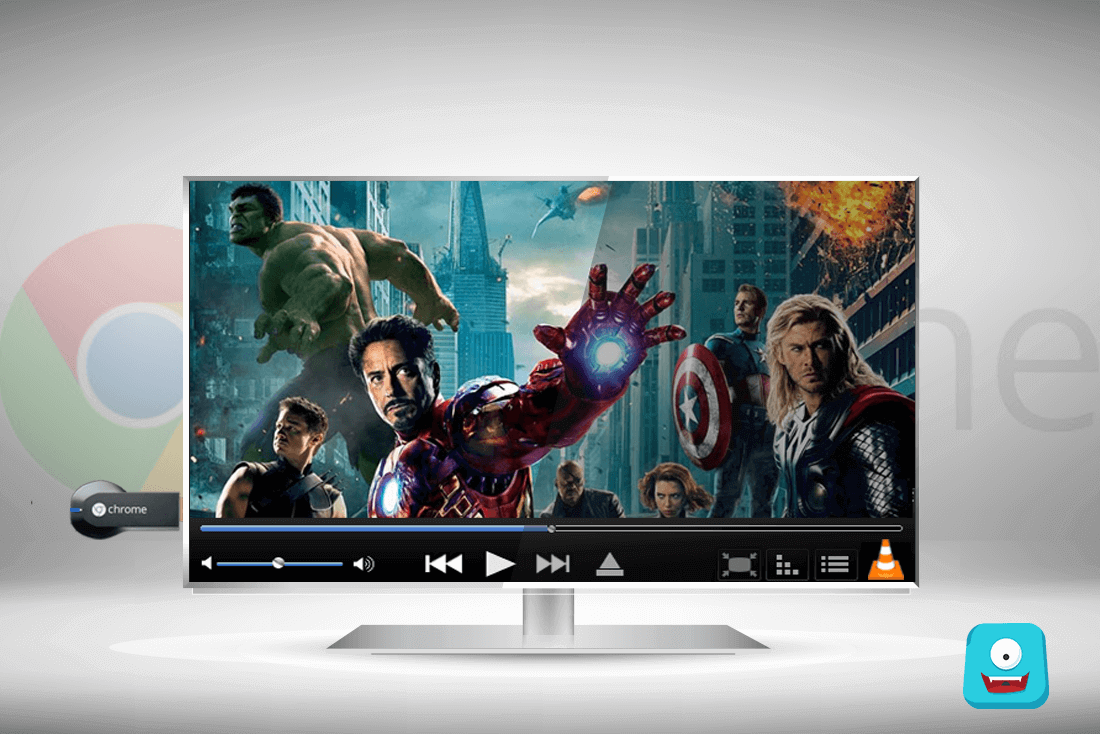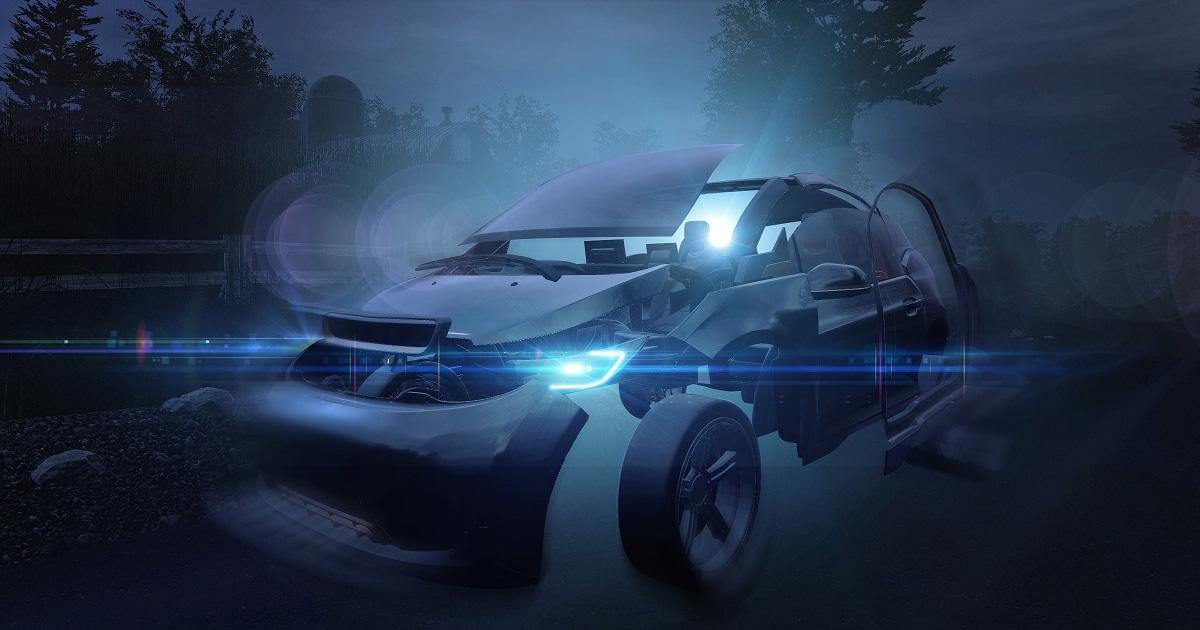How to Cast VLC to ChromeCast: A Step-by-Step Guide

If you wish to watch your favorite videos on a bigger screen like your smartTV, or just want to experience a larger than life video experience, all you need is to know how to cast VLC to ChromeCast. Where VLC is an immensely popular media player, ChromeCast is a streaming device from Google that’ll help you to have more fun with your videos.
Bottom line?
You get to watch all your favorite shows and videos from your laptop/phone to a much larger screen of your TV.
Now, Before we begin with the steps on how to cast VLC to ChromeCast, let’s know them a little better.
VLC Media Player- Your One-stop Media Player
VLC Media player is an open-source cross platform media player that supports most multimedia file formats and plays from DVDs, CDs, VCDs as well. It also supports a variety of streaming protocols as well.
It is a simple, fast and powerful media player that is highly customizable with a variety of skins.
The best part?
You can even create your own skins with VLC skin editor and add plugins to improve the overall experience. Moreover, being open-source it is free to download and available on most platforms. VLC is compatible with Apple, Android, Windows, Linux, iOS and many other OS as well.
ChromeCast- Get Casting Now
ChromeCast is a streaming device developed by Google. An easy way to get music, videos, apps and games on your TV, ChromeCast plugs into the HDMI port of your TV and casts your favorite shows and videos onto a larger screen.
Starting at just $35, this device enables you to easily browse, queue and control your TV from anywhere in the home. Furthermore, with ChromeCast in your home, you can upgrade all your existing TVs. It is also compatible with most platforms like Windows, Mac, iPhone, Android, and Chromebooks.
All that is great, but what about the focus point?
The key point here is, “Can VLC cast to ChromeCast?”.
Well, let me tell you now!
Can VLC stream to ChromeCast?
Well, technically VLC doesn’t support ChromeCast. Although VLC developers have been trying all their might to get ChromeCast embedded into VLC, right now there is no direct method by which you can cast VLC to ChromeCast.
But yes, there is one good news:
VLC developers late nights of coding has paid off to some extent and they have come up with a nightly build of VLC using which we can stream VLC to ChromeCast. VLC version 2.2.4, 3.0 and above enables one to stream to ChromeCast.
Currently, this feature is available only for Windows version of VLC media player and might not work with other platforms.
Now, let’s start off with this step by step guide on how to cast VLC to ChromeCast.
How to stream VLC to ChromeCast in Windows PC
To begin with, you must own a ChromeCast device for VLC stream to ChromeCast.
You might not know, but there are two ways by which you can cast VLC to ChromeCast in Windows.
The first method requires a ChromeCast plugin to your chrome browser and the other one is naturally, without any plugin.
So let’s start with our first method below:
How to Cast VLC to ChromeCast using ChromeCast Plugin
First of all, you need to make sure that you have installed the latest version of VLC on your PC. This is because the latter versions might not work with ChromeCast.
Now that you’ve the latest VLC on your system, let’s get down to the steps showcasing how to cast VLC to ChromeCast.
- In this step, you need to connect your ChromeCast device to your TV using an HDMI port.
- Now, open Google Chrome and install Google Cast Extension to it.
- Open your VLC player and select the video you wish to play.
- Parallely, Open your Chrome browser and click on a new tab. From hereon, select cast screen option from Google Cast extension. This will stream VLC to ChromeCast.
- Now, whichever video you have selected to play in your VLC media player, it’ll start playing on your TV screen as well.
Wasn’t it easy? With these simple steps, you now know how to cast VLC to ChromeCast.
But wait… There’s more.
You can also stream to ChromeCast from VLC. Yes, you read that right! Without the need of any extension also, you can enjoy VLC stream to ChromeCast. The steps are discussed below.
How to Stream to ChromeCast from VLC without Google Cast Extension
It is quite easy to learn this method showing you how to cast VLC to ChromeCast. Just go with the steps and your video will stream from VLC to ChromeCast in no time.
- Download the latest version of VLC media player on the basis of its configuration, be it 32 bit or 64 bit.
- Now make sure that your ChromeCast device is connected to your TV properly.
- Open the VLC media player and navigate to Video>Renderer.
- From this option, go to the submenu and click scan. It’ll start to display all the nearby devices.
- Select your ChromeCast device from the list of devices displayed on the screen.
- Now play your desired media in the VLC media player. Once you do so, it’ll display a prompt box on your screen.
- This is done for security and to avoid unauthorized access. Simply click on View Certificate and it’ll display the ChromeCast certificate on your Windows screen.
- Select Accept Permanently option.
- The video will now start playing on your video screen and you can enjoy your VLC stream to TV.
This was all about how to cast VLC to ChromeCast in Windows PC. Now, you can’t always carry your PC or Windows Laptop everywhere. But there is one gadget that I am quite sure you don’t leave your house without…
Yes, I am talking about your Android smartphone. Even though you can’t stream VLC to ChromeCast using VLC directly, but for Android users, there is a way around it to cast VLC to ChromeCast.
This way is actually quite easy to follow. So let’s quickly get to the steps now:
How to Cast VLC to ChromeCast using Android Phone
These days, everyone has an Android Smartphone/Tablet. This OS has gained such popularity that it is adopted by world famous phone manufacturers as the base OS in their phones.
So, naturally, it does support ChromeCast as well. Today, I’ll tell you a way by which you can stream VLC to ChromeCast using your most prized possession-your Android SmartPhone.
Without ado, let’s get into the steps to stream VLC to ChromeCast:
- Firstly, you need to download ChromeCast app to your mobile phone. Just navigate to Play Store. Search ChromeCast and download it.
- Secondly, you need to make sure that your VLC media player is updated and is of the latest version.
- Now connect your ChromeCast device to the HDMI port of your TV.
- From your Phone, navigate to your ChromeCast app and select the Cast Screen option.
- From here, select your device’s name from the list of options. This will select your TV screen as the casting screen.
- The last step, well is as easy as eating a pie. Just play your favorite media in your VLC media player.
- It’ll be simultaneously screened onto your TV screen.
So this was it on how to stream VLC to ChromeCast. Now you can easily enjoy your favorite movies and TV shows from your phone to a large screen TV in just a few clicks.
Thoughts in Summary
Well, after reading this step by step guide on how to cast VLC to ChromeCast, now you can experience your favorite movies on a large screen. It will just take one VLC media player and your ChromeCast device to get you going.
Albeit, you can’t stream movies to ChromeCast directly from VLC (it isn’t natively supported yet!), there might be a possibility of this feature coming into VLC soon. But till the time comes, you can make do with our small guide and enjoy your movies in a Home theatre experience instantly.
If you come across any difficulties, you can leave a comment below and we’ll help you out. 🙂






Nice post. I was checking constantly this blog and I’m impressed! Extremely helpful information specially the ultimate section 🙂 I take care of such info a lot. I used to be looking for this certain information for a very lengthy time. Thank you and best of luck.
Very great post. I just stumbled upon your blog and wished to mention that I have truly loved browsing your weblog posts. After all, I will be subscribing on your RSS feed and I hope you write once more soon!